Let’s face it – firing an employee is difficult and nothing that a business owner looks forward to. But there’s a lot of truth to the old saying that goes: “if you think it’s expensive to hire an expert, wait until you hire an amateur.” Hiring someone who can’t deliver or is simply a poor fit can have significant impacts on your bottom line, your team culture, your customer service, and perhaps your mental health.
So it’s important to recognize the red flags in behavior and performance that let you know the employee isn’t a good fit for your company so that you can do damage control quickly. Not sure what those red flags look like? This article will help you identify 6 key signs that it’s time to fire an employee.
#1. Costly, Customer-Facing Mistakes
When other team members and clients begin to complain, you know it’s time to take action. The complaints might not directly mention the problem employee, but you will start to notice a pattern:
- Employees complaining about their workloads because they are covering the tasks of an underperforming teammate
- Customers are complaining about deliverables that are all assigned to the same employee
- Drama in the office that consistently traces back to the same person
Under-performing employees not only add stress to the rest of the team, but can also turn other talented team members into disengaged, unhappy employees. All of these things lead to a loss of clients and a reduction in your revenue. It is also not uncommon for business owners to report a loss of sleep over these challenges.
#2. Negative Impact on Team Culture
Companies with highly-engaged employees are 22% more profitable than their competitors. Toxic employees who promote drama or dissatisfaction can impact your team negatively and prevent them from working well together. And the longer you let the behavior continue, the more your credibility as a leader comes into question.
Here are some key signs that indicate you have a toxic employee:
- Stealing company time by wasting working hours doing personal or non-work-related activities
- A general negative attitude about work, co-workers, you, and/or your business
- A lack of participation during meetings
- An inability to take responsibility for their actions or performance: everything is someone else’s fault
- A history of gossiping and starting “us against them” cliques at work
- Resistance or refusal to follow procedure
- Is disrespectful towards others, about time and resources
As this list shows, toxic employees might not have the same impact on customers directly, but behind-the-scenes drama and toxicity can be just as damaging to your business. If one person is pulling you down, then it doesn’t matter how good the rest of the team and your brand are: everything else will follow, unless you take steps to correct it..
#3. Fixed Mindset
With the dynamic way that business works today, it’s likely that your team will need periodic training to keep up with market demands and trends. However, some employees may refuse to make the needed changes. This can happen with employees who are averse to change or have been with your organization for years “doing things their way.” Alternatively, some may feel threatened by the new changes or simply disagree with them altogether.
Whatever their motivations may be, employees who refuse to grow can seriously hurt your business. This behavior can start out as small as continuing to underperform, but if left unchecked, it may grow as large as actively undermining management in an effort to ensure that change does not occur.
Another sign an employee is unwilling to buy in is their engagement level. Are they always arriving late and leaving early? Taking long lunches? Openly complaining about management to clients and colleagues?
If you’re seeing a fixed mindset in one of these ways, after providing this team member with support they need to grow, it’s time to let them go. You’re making the changes needed to benefit your business, and allowing team members like these to stay means you are choosing them over you or your business.
#4. Unethical or Illegal Behavior
A non-negotiable red flag is when employees engage in behavior that is flat-out illegal or unethical.
Other unacceptable behaviors range from using company money to fund personal expenses to falsifying documents or even theft. With all these possibilities on the line, it’s important to have a system of checks and balances anytime sensitive information or money is involved.
Unethical behavior isn’t always blatant, either. Sometimes all it takes for fraud or embezzlement to occur is someone inserting a different account number or transposing a few numbers on an accounting sheet. Most importantly, ignoring issues like the unauthorized sharing of trade secrets, sharing client information, misuse of company funds, or harassment makes you directly liable for legal action.
Don’t let this particular red flag remain waving long without reaching out for HR help – it can set up your entire business for failure.
#5. Poor Job Performance
Firing an employee because of underperformance can be difficult because they might be well-liked by others or generally pleasant to work with, but still: an underperforming employee hurts the entire team. Incompetence on the job is the inability to perform the work duties outlined for a particular role. Poor quality or errors in work can lead to rework and it will cost you time, money, and energy to correct mistakes that otherwise wouldn’t exist.
Likewise, those who underperform put increased stress on the rest of the team to carry the workload – which is worth noting because employee burnout and lack of recognition are two major causes of turnover. And in many cases, the incompetent employee makes mistakes that create more work, damage the brand, and decrease client satisfaction and referrals.
Good employee relationships shouldn’t come at the expense of the very thing that keeps you in business: growth and revenue. So this is where you have to ask yourself: are you choosing your employee or the success of your business?
If you’re second-guessing firing this employee, then it’s also possible that your own management practices are contributing to poor performance. Ask yourself these questions:
- Was the employee properly trained?
- Are objectives and expectations clear?
- Is the workload reasonable for one person?
- Are there key resources the employee needs to do their job but haven’t been provided?
- Did you hire the wrong person?
- Has the employee voiced concerns that haven’t been addressed?
The sooner you get to the bottom of these tough questions and make the necessary changes, the sooner you can create a smoother, more productive journey with future employees.
#6. Insubordination
Insubordination is your employee’s intentional refusal to follow reasonable directives. This might look like a blatant refusal of a request or taking an unreasonable amount of time to complete a task. Insubordination hurts your business productivity, your profitability, and your ability to manage. Worse, one insubordinate employee can quickly turn into a culture of employees who don’t respect you or your rules.
Examples of insubordination include:
- Eye rolling, mocking, yelling, and/or condescending tones
- Unprofessional behavior such as cursing or not wearing a uniform
- Verbal or non-verbal refusal to follow express or implied work duties
- Intimidating or argumentative behavior
Behavior like this spreads like wildfire through your team. It undermines your authority in the short run, and will soon escalate to hurting how well you perform in your market. Talk to the problem employee to ensure there is no misunderstanding of duties and expectations related to respecting you and the work environment. Do not hesitate to let them go if the behavior is egregious or persistent.
With any business, success comes necessary growing pains. Black women-owned companies like HR TailorMade specialize in helping small to mid-sized organizations navigate the complex decisions that come with being an employer. From HR audits to creating policies and procedures, they help you build happy, productive, and successful teams. Learn more about their services here and check out HR TailorMade’s tips and tools on their Youtube channel.
Sistahbiz Global Network guides Black women entrepreneurs, through building teams and scalable businesses. If you or someone you know would benefit from lessons and support like this as delivered through a business makeover, leadership training, and a network of sistahprenuers, click here to learn more.

